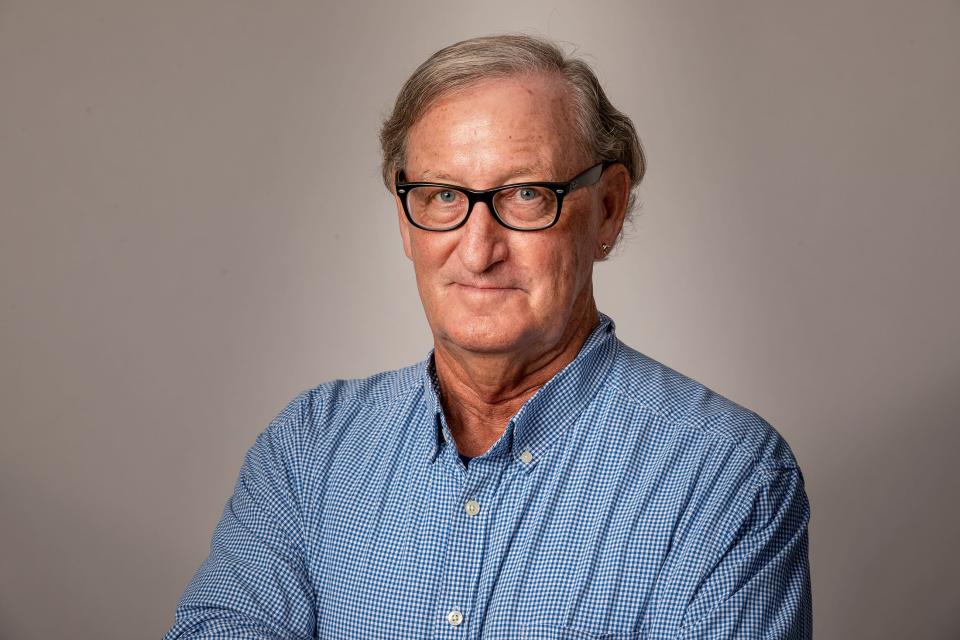Don't bottle college students up. Let them explore their creative drives | Bruce Anderson
The post-pandemic college students are simply a different breed.
Suddenly made uncomfortably aware of their mortality, many people already in the workforce began to re-think what they were dedicated to. Loyalty to fields and particular kinds of work faded rapidly into the background.
People wanted to be able to choose their direction, regardless of where they were in their careers. Many — because of institutional loyalty, redoubling of interest in their chosen area, or for plain financial reasons — chose to stay where they were. But many did not, and almost everyone at least thought about a shift, however minor.
These students are the children of the parents, grandparents and caretakers of that crew – who now also have thoughts of their own about how to approach life. There are two forces at play: the almost desperate need to be sure of a job upon graduation, and the longing to have choices in what they study.
At first glance, these seem diametrically opposed, but I’m going to argue that, in fact, they can be complementary if we play our cards — and credit hours — strategically. Making the first happen is pretty straightforward: Simply take one major, train hard for that major’s substance, graduate on time and with good grades, and you’re in.
Election night In Ohio, Kentucky and Virginia, Tuesday was a good night for abortion rights | Anderson
The second, which serves students that are also inquisitive, alert and genuinely curious about options, deserves some serious attention as well. Since the pandemic, it’s become a central concern.
With four years in play, it seems that there should be plenty of time for both – and there is. So why the apparent lack of choice? The problem may be two-fold: restrictions from a general education program that has ballooned to gargantuan proportions, coupled with the clingy-ness of the departments themselves.
There is always more to learn about any field – political science is no exception. But if we force people into majors bloated with everything they “should” know, we close off other avenues of student inquiry. If I have to sacrifice “Conflict and the Peloponnesian War” so that a student can take ceramics, or Bible study, so be it. If they want to, they can learn about Pericles in grad school.
Over-controlling basic canon knowledge is also a problem. Math, writing, scientific method, arts, philosophy and communications generally should be in every student’s experience. And they usually are, anyway. But requiring them in double doses misses the point. Go for the minimum “required” hours and allow students to choose where to emphasize.
The new direction in higher education must be one in which students can follow all of their creative and imaginative drives, not just one. Narrowly embedding someone in one major course of study is destructive of initiative. They need to be narrowly trained, yes. It's critical. It leads to priority one: jobs.
But they must also be able to follow their curiosity.
Bills about Confederate statues Real hayseeds have more to worry about | Anderson
This means recognizing the need for majors that require professional certification and training (and therefore have a larger number of hours) while at the same time reducing or making complementary other majors without these requirements. It means making “general education” accessible, simple and relatively small in terms of credit hours.
And most of all, it means encouraging students to take classes outside their major, to pick up an additional major or minor, to truly explore their world.

For four years, at many institutions (including mine), students have direct access and the option for engagement with experts in every field and discipline under the sun. And they should take full advantage of that fact. Trying to box them up in one major alone is a selfish faculty turf war over numbers that is inherently caustic to the most important process happening with students: discovery.
We’re entering upon an era of real exploration. We do not know what students will need to know in the coming years. We know they must have specialties — careers.
For the rest, let’s let them choose.
R. Bruce Anderson is the Dr. Sarah D. and L. Kirk McKay Jr. endowed chair in American history, government and civics and Miller distinguished professor of political science at Florida Southern College. He is also a columnist for The Ledger and political consultant and on-air commentator for WLKF Radio in Lakeland.
This article originally appeared on The Ledger: Colleges need to let students explore their creativity more | Anderson

